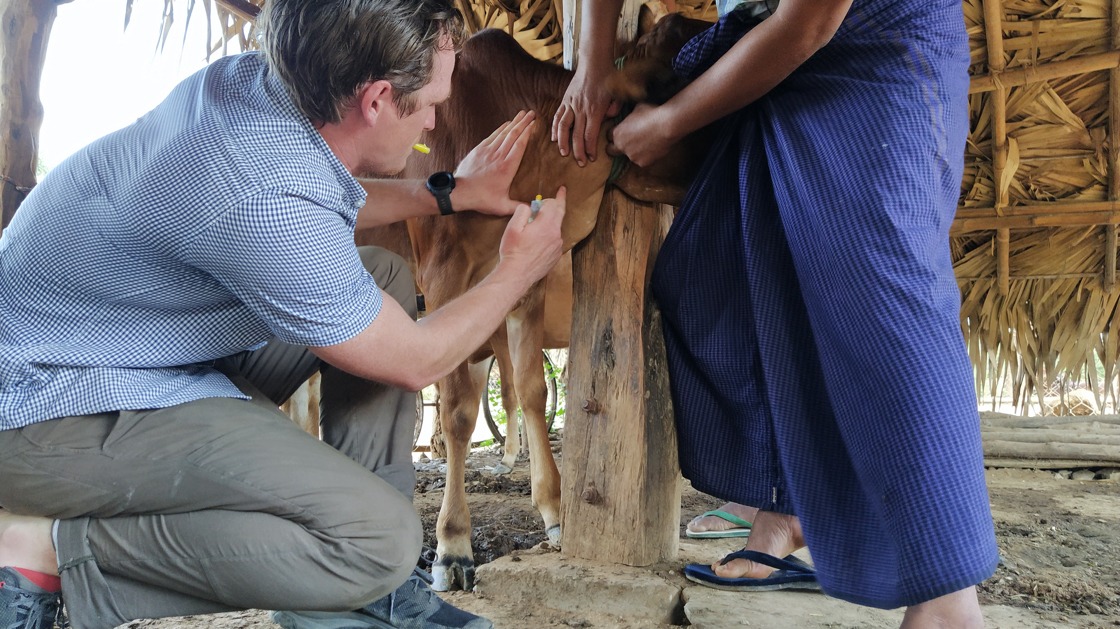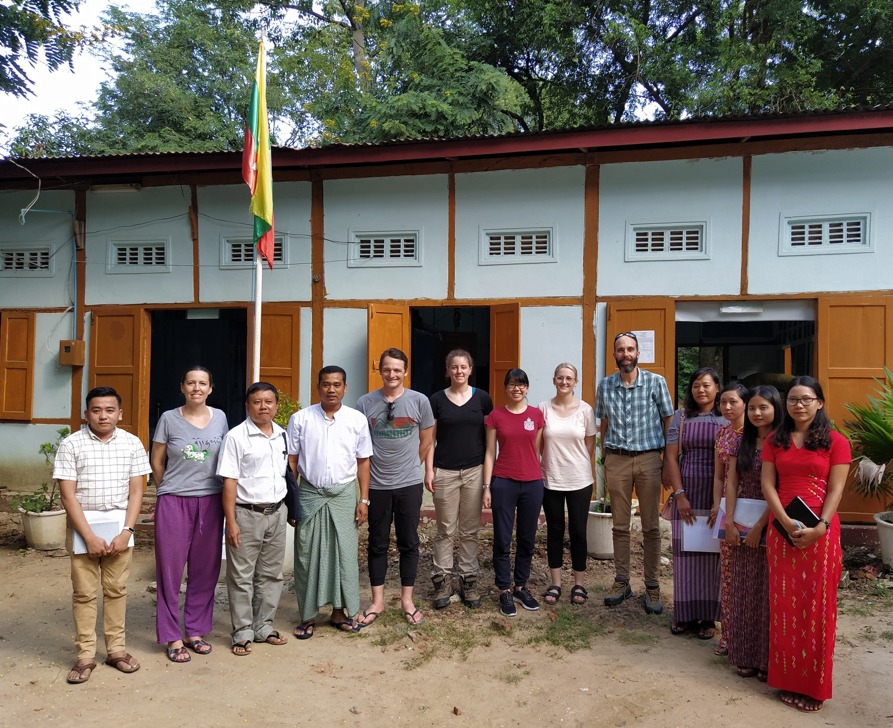

Animal health pilot study to improve livelihoods in Myanmar
December 18, 2019
As part of our concerted efforts to support and encourage the next generation of Australians in study, careers and volunteering in international agricultural research, the Crawford Fund State Committees proudly support our Student Awards.
These awards allow university students from around Australia to include an international component to their studies, to travel to their host countries to research and explore their chosen topic areas and gain international agricultural research experience and expertise.
Throughout the past year, we have enjoyed sharing the journey of our 2018 recipients of these Awards and their experiences have been diverse and overwhelmingly positive. They are available here.
We now proudly present to you the reports from our 2019 cohort as they complete their travels and research. To date we have reported on the experiences of Luke Dieters from the University of Queensland; Jori Bremer from the University of New England; Nadeem Akmal from the University of Canberra; and most recently Nina Matsumoto from the University of Sydney.
Also, we have launched our 2020 Student Awards which are available for university students from every State and Territory so check out the backgrounder and apply online.
University of Melbourne veterinary medicine student Peter Richardson undertook work in an ACIAR-funded project “Improving Farmer Livelihoods by Developing Market Orientated Small Ruminant Production Systems in Myanmar” in October. This is part of a collaborative project between The University of Melbourne and the Myanmar Livestock Department of the University of Veterinary Science and Yezin Agricultural University.
“The project works alongside participatory villages to assess ruminant health, test improved goat and sheep feeding strategies, animal health management and novel husbandry systems with the goal of increasing on-farm productivity in a realistic and sustainable manner,” explained Peter.
“I have taken away more than simply the physical experience of working in remote regions of a developing country but have been strongly influenced by the kindness and generosity of people who struggle daily to simply feed their family. It truly was an eye-opening experience,” said Peter.
This project was conducted as a pilot study for a large-scale study into livestock health, feeding practices and production systems in the Central Dry Zone of Myanmar. Villages were visited where data on animal health and production systems was collected, semi-structured interviews conducted to gain an understanding of village structure, economics and the role of women, and blood samples from animals were collected to provide insight into nutrition and parasitic disease.

“While results are still pending, it is apparent that animal nutrition is a key limiting factor with negative influences on animal growth, health and reproduction. This study provided a starting point for a large-scale research-for-development project involving the University of Melbourne and the University of Veterinary Science in Myanmar,” he said.
Understanding the value of small ruminants to the producer is vital in developing management plans to increase productivity. Inadequate nutrition was clearly identified as a key limiting factor in livestock operations.
“The data gained from this pilot study will help in selecting villages and townships for participation into the long-scale study, with many of the true and perceived health issues of livestock now clearly identified.
“This study provided insight into the feeding practices of farmers in these regions and identification of innovative farmers who might be willing to participate in feeding trials as a component of the larger study, where there is a huge potential to improve livestock health and growth.

“We have been able to establish connections between Australian research, Burmese researchers, local veterinary officers, Community Animal Health Workers and villagers which may help bridge this gap.
“By showing a repeated presence in the villages, a good rapport with farmers and headmen can be established, greatly contributing to the likely success of the project.
“On a more personal level, I gained great insight into the importance of good communication in maintaining good relationships with clients. This is something that I was already aware of, but my experiences reinforced this. It also showed me how essential nutrition is to animal health and production. While I had learned of this throughout my studies, it was eye-opening to see how stark the differences in animal health, growth and reproduction were in Myanmar compared to those in Australia,” said Peter.
“The experiences that I had in Myanmar would not have been possible without the assistance of the Crawford Fund. A big thank you to the Nossal Institute at the University of Melbourne, The University of Veterinary Science in Myanmar, the Livestock Breeding and Veterinary Department in Myanmar and all of the villages in the Central Dry Zone that agreed to participate in this project,” he concluded.




